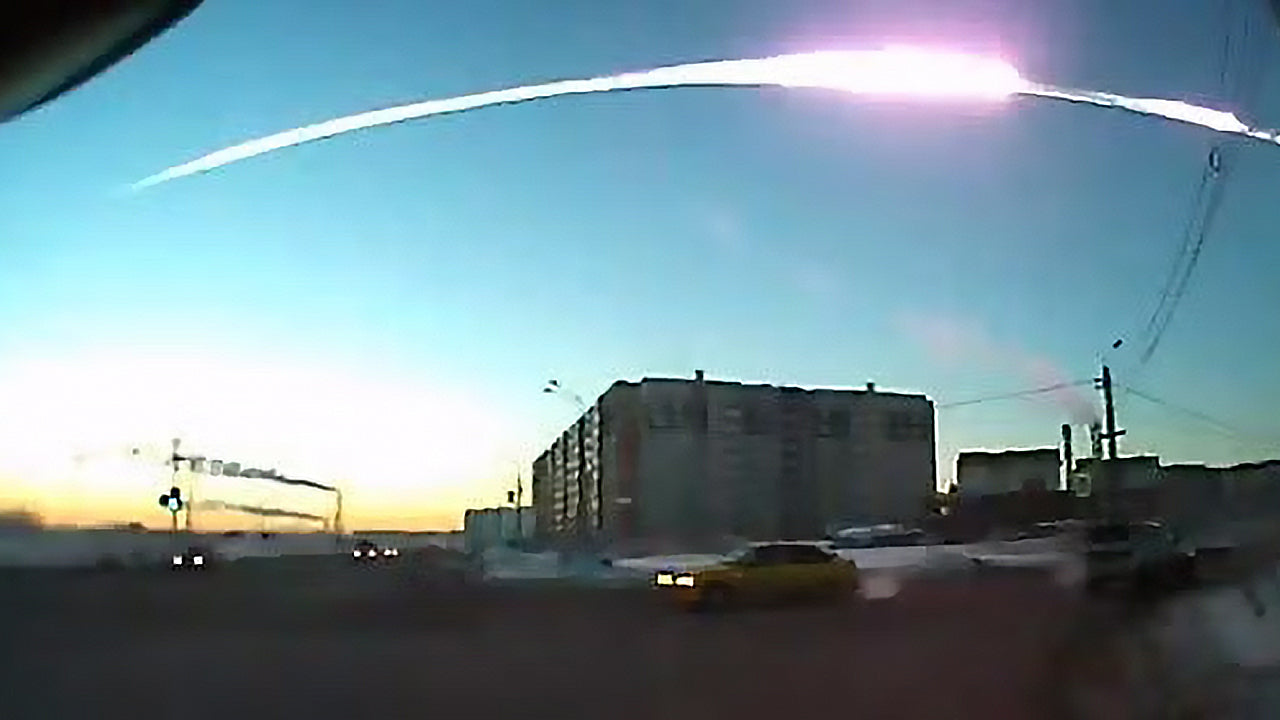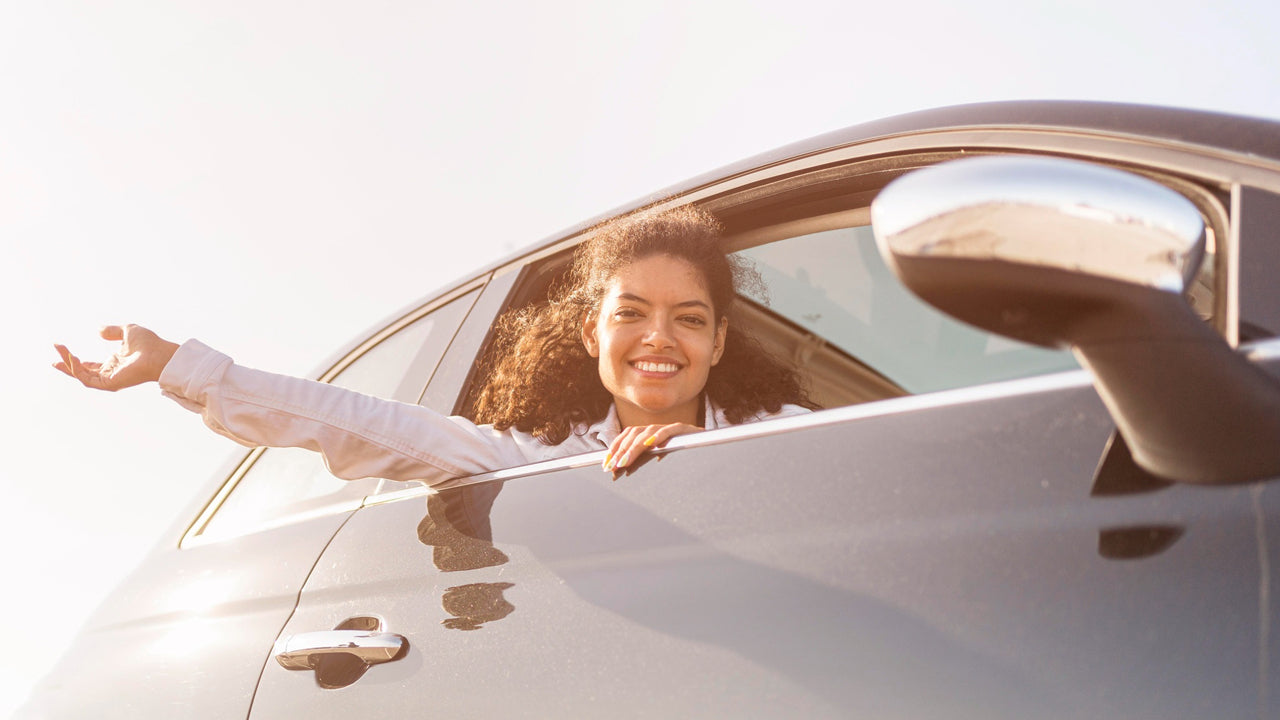So, you're in the market for a dash cam, but there's that many dash cams on the market; that you don't know which one to go for! Well, from the depths of cheap options such as Temu or Wish to our very own 4K Halo Ultra Dash Cam, the variety of dash cams that arise to the occasion are endless.
Don't fear - Road Angel are here to help you navigate the world of dash cams with our "Ultimate Guide to Dash Cams", assisting you in learning & choosing the perfect dash cam for your requirements, along with in-depth information on how to setup, use and make the most of your dash cam.
Contents
- Introduction to Dash Cams
- The History of Dash Cams
- Types of Dash Cam
- Dash Cam Features & Technology
- The Benefits of a Dash Cam
- Dash Cams Debunked
Introduction to Dash Cams
Let's start with the basics, and introduce you to the concept of a dash cam and what dash cams are supposed to do for you. Dash cams are the little video recorder that sits on your dashboard or affix to your windscreen, that when a car cuts in or pulls out on you - you normally point to it and shout "I've got a dash cam!".(this is more common than you think!). Comedy aside, dash cams are your potential saviour from simple motoring mistakes, reckless drivers, criminals instigating the "crash for cash" scam, amongst other areas such as natural disasters.
Dash cams can vary in features such as motion detection, GPS tracking, night vision/low-light capture, screen/no screen options, amongst a plethora of other features - but we'll go into more depth about each individual one (click to scroll to dash cam features).
The History of Dash Cams
Dash cams are a new thing, right? Wrong! Very wrong in fact.
- 1980s: Dash cams actually stem from the early 1980s, when law enforcement threw huge cameras/VHS cameras on tripods into their vehicles to help with both safety & prosecution.
- 1990s: In the 1990s, this then expanded to the same concept; but for civilian use (imagine driving around as a family with a VHS camera stuck in the middle of the vehicle!).
- Early 2000s: Shortly after Y2K, Europe started to adopt the whole ideology of dash cams, for insurance purposes.
- Mid 2000s: After a huge rise in insurance scams & corrupt law enforcement in Russia, we witnessed a big boom for dash cams, as they became a staple piece of technology to protect you and your car.
- Early 2010s: As technology becomes more accessible and cheaper worldwide, more drivers adopted the use of dash cams as a precaution.
-
2013: Public awareness of the capabilities of dash cams skyrocketed as the Chelyabinsk meteor in Russia.
- 2015 to 2020: Increased concerns about vehicle safety and insurance accountability lead to a surge in dash cam usage. New features include dual-lens cameras for front and rear recording, enhanced night vision, and integration with smartphone apps.
- 2020s: Advancements in dash cam technology continue with features like cloud storage, AI-driven alerts for potential hazards, and integration with broader vehicle telematics systems.
Types of Dash Cams
Did you know there's multiple types of dash cams? It does sound weird, but they exist - no longer are we limited to just the front-facing dash cams with intrusive screens!
- Front-facing Dash Cam: the traditional dash cam, just a regular front-facing dash cam that records everything in front of you (old reliable!).
- Rear-view Mirror Dash Cam: essentially replacing your rear-view mirror, this dash cam gives you a crisp and clear view of what's behind you, whilst record both front and rear - all in a non-intrusive manner.
- Front & Rear Dash Cams: a dual lens setup allows you to record multiple angles - in this case it records both the front of the vehicle and the rear of the vehicle.
- Cockpit View: sometimes a cockpit view can come in handy when it comes to car safety/theft, and even more so when it comes to taxi's monitoring and recording their passengers with CCTV.
Dash Cam Features & Technology
Over the years dash cams have changed massively. They've shrunk to the size of something that can fit in your pocket, can tell you what speed you were travelling at, record 4K footage, detect a collision & much, much more, and we're here to tell you all about it.
- Size: from the huge VHS cameras on tripods in the '80s to the now pocket-sized saviour, dash cams have rightfully evolved with the times and reduced in size, becoming less of a distraction along the way and being as discreet as possible, whilst retaining quality and features.
- Quality: the quality of the footage dash cams record is now HD, ranging from 720p through to 4K - and we can suggest all the way up to 8K in the future too! This helps you get the clearest of footage possible, whether it's for insurance purposes or for your own personal viewing at a later date.
- Storage: storage in general has evolved across all technologies, but most dash cams use SD cards, or some kind of internal storage such as an SSD.
- Telematics: dash cams can now record telematics, such as speed, location and even predicted route based on real-time information - great for fleet management!
- G-Force Readings: some dash cams can even record G-Force, whether it's fast acceleration, harsh braking, sharp turns or even collisions.
- Audio Recording: dash cams nowadays have even better quality of audio capture, which results in more accurate depiction of video evidence (noise of a collision etc.).
-
Connectivity: connectivity is everywhere nowadays, which allows for real-time information to be delivered where it needs to go. Whether that's viewing previous footage on your phone (if you're pulled over safely obviously!) or sending live telematics to the fleet manager, dash cams have the ability to record it.

The Benefits of a Dash Cam
Whilst the cons of dash cams don't really exist, the pros are very extensive, and we're here to tell you about the what, and why!
- Security: whether you're driving, stationary, parked up or away from the car, a dash cam can cover surveillance in any situation (if hardwired), providing you around the clock security wherever your car may be located.
- Lowering Insurance Premiums: typically, having a dash cam lowers your insurance premiums (dependant on car insurance provider) - this is due to having recorded evidence if an accident were to occur.
- Capturing Unforgettable Moments: not a conventional benefit, but one nevertheless; whilst out and about you may capture unusual events, such as meteor showers, or something as simplistic as a beautiful memory of a gorgeous sunset.
- Monitoring & Tracking: through the use of telematics, you can monitor driver behaviour easily, this, paired with tracking, offers a great solution for fleet management.
Dash Cams Debunked
There is a lot of "hoo-ha" about dash cams that circulates the web, which I suppose can be perceived as cons, or at least potential cons anyway. We're going to go through some of those myths about dash cams and give you the cold, hard truth.
-
Dash Cams Invade Privacy
This is simply untrue. Dash cams are designed to be used on public roads, and according to UK law, public roads are public property that allow the recording of anyone or anything from wherever the public is situated, just like with any camera, including mobile phones & CCTV. -
Dash Cams Are Only Necessary For Bad Drivers
Again, nope! Dash cams help with the security of your vehicle, and can also do things like capture special moments on your travels, such as scenery or anything unusual. -
Dash Cams Are Illegal
In the UK, dash cams are perfectly legal. In most instances they're almost encouraged as they promote road safety and other important information. -
Dash Cams Drain The Car Battery
If you asked this question a fair few years ago then the answer may have been different - but with the advancement of technology on this front, dash cams now have built-in sensors so that when the car battery drops to a certain level of charge, the dash cam shuts off. -
Dash Cams Are Difficult To Install & Use
Dash cams are relatively easy to hardwire install, but most come out of the box ready to plug n' play. Most dash cams interfaces are easy to use, but our very own dash cams do not have an intrusive screen - we utilise the Road Angel app instead so you can safely review the footage when you're not travelling. -
All Dash Cams Are The Same
This one makes everyone here at Road Angel chuckle, as the common misconception is that all dash cams do one thing and one thing only - record. Whilst that is the main purpose of a dash cam, a mix of different features for each dash cam makes them unique.





